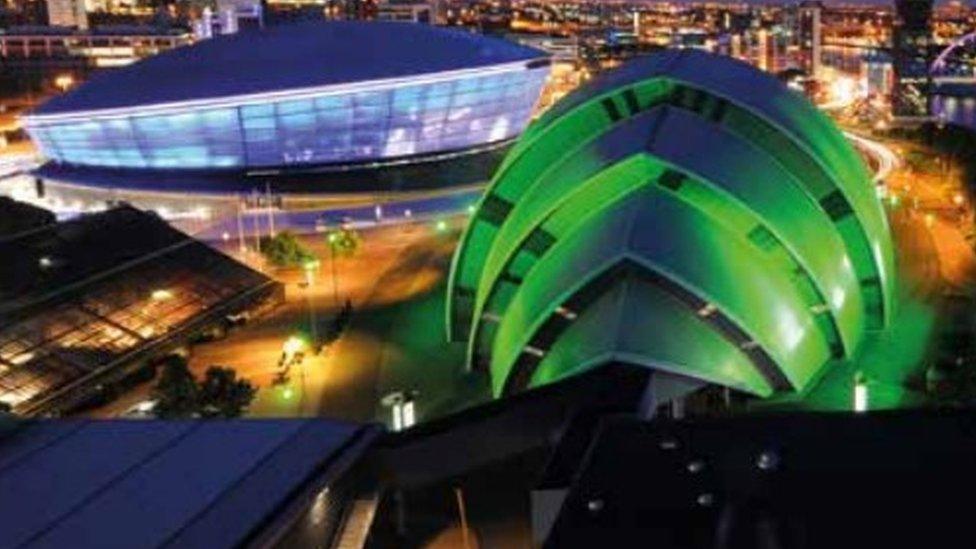Covid in Scotland: Vaccine certificates issued with QR codes
- Published
- comments
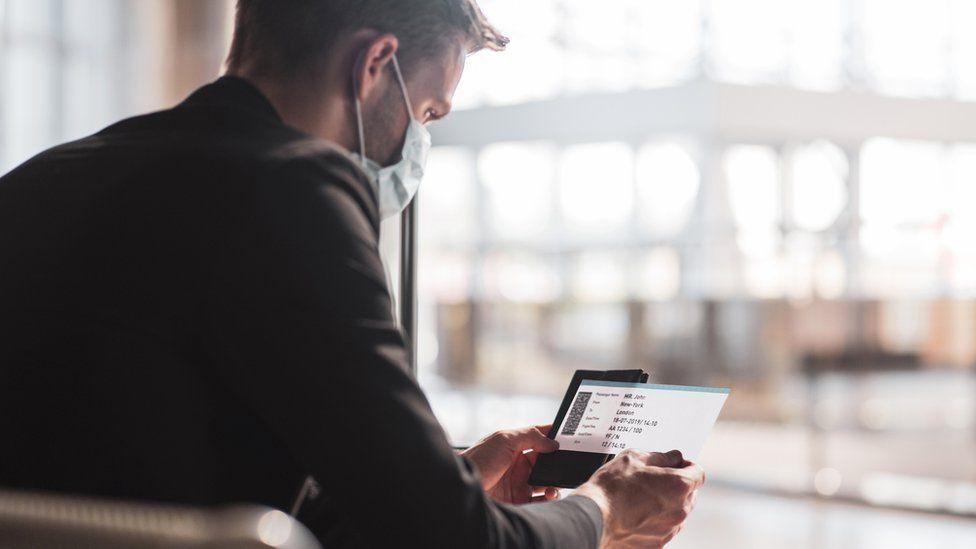
People in Scotland can now download or receive a paper QR code showing their Covid vaccination status.
The change comes after plans to require vaccine passports for nightclubs and large events were announced.
Health Secretary Humza Yousaf said the codes would allow people without smartphones to show they had been vaccinated if the scheme is approved by the Scottish Parliament.
The free documents can be downloaded from the NHS Inform website.
They can also be posted to people requesting them by phone.
The scannable images, or 2D barcodes, are being added to all vaccination records requested from Friday.
Vaccinated children over 12 will only be able to request a copy of their vaccination status by phoning the Covid-19 Status Helpline.
On Wednesday, Nicola Sturgeon announced plans for vaccine passports to be required for entry to nightclubs and many large events in Scotland from the end of September.
The plans, which go before MSPs next week, would apply to indoor and outdoor events.
When similar plans for England were outlined by the UK government over the summer, senior Scottish government figures including Mr Yousaf and Deputy First Minister John Swinney said they did not believe vaccine passports were the way to go in Scotland.
Parliament vote
The Scottish Liberal Democrats and Scottish Labour have also criticised the proposals ahead of next week's vote in the Scottish Parliament., with Labour leader Anas Sarwar saying the government was using a "knee-jerk reaction" to cover for the fact it was losing control of the virus.
And the Scottish Conservatives have accused the government of wasting months that could have been used to plan for the introduction of the scheme, before pulling a "striking u-turn" at the last minute that was causing confusion for businesses and the public over how it will work.
But the first minister said vaccine passports were needed to help stem the recent surge in the number of cases in Scotland, which she described as "extremely concerning".
Latest figures showed a further 6,107 people had tested positive, with the number of people in hospital doubling in the past 10 days.
Several areas of Scotland are also among the regions with the highest rates of the virus in Europe.
Mr Yousaf told BBC Radio's Good Morning Scotland programme on Thursday that he now believed that "the benefits of a certification scheme, in terms of a public health intervention, in terms of incentivising vaccination, those benefits outweigh the concerns that still remain".
He said adding QR codes to paper or PDF records would resolve the problem of people who did not have smartphones being unable to access the vaccine passports.
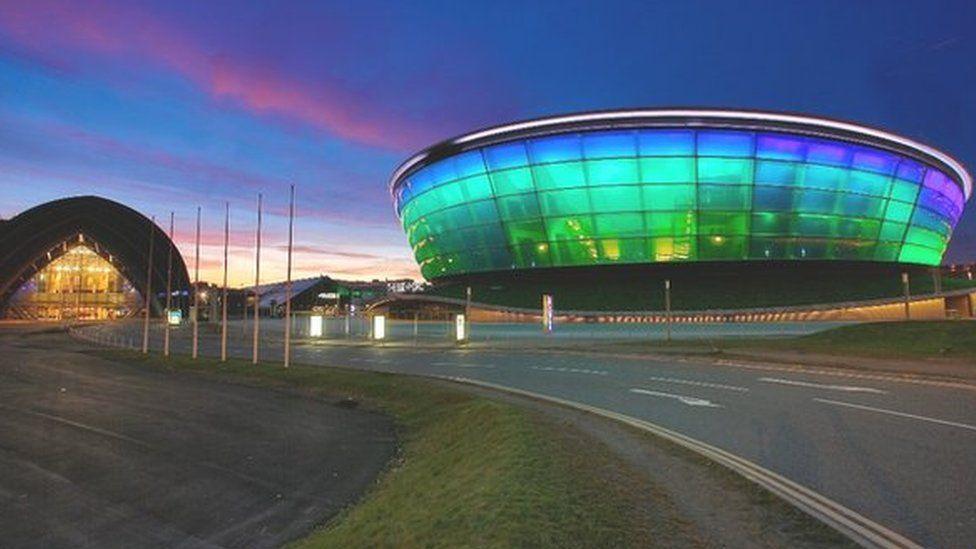
Entertainment venues like the Hydro in Glasgow may have to demand a vaccine passport for large crowds from the end of September
Meanwhile, Mr Swinney told Holyrood's Covid-19 recovery committee earlier this week that the government hoped to increase the uptake of vaccines in younger people.
Latest estimates for the proportion of 18 to 29-year-olds who are unvaccinated stand at 25.6% in Scotland, but 50.8% of 16 to 17-year-olds have now received their first dose.
"What we have to balance that against is the likelihood that unless we take action to further improve vaccination levels, we may have to take action at a later stage which may lead to the application of further restrictions," Mr Swinney said.
He acknowledged there was a "pretty fine line" between some venues being a pub or a nightclub, and said the issue would be discussed with the sector in the coming days.

What is a vaccination status record?
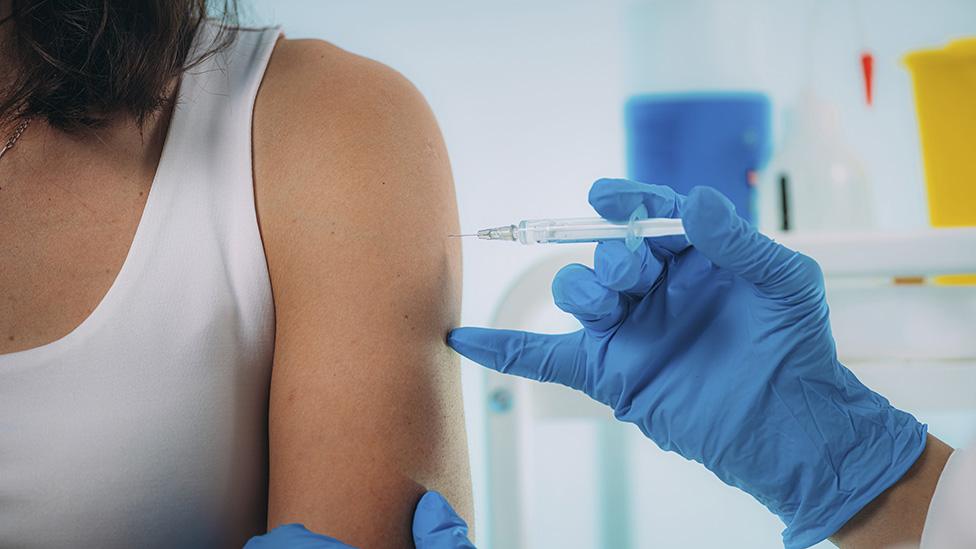
A vaccination status record is a document showing proof of vaccination, but it is not yet legally required to gain access to venues within Scotland.
It is, however, already required for travel to some countries. Within the UK, it can be used to show Covid-19 status instead of providing a negative PCR or lateral flow test to enter some venues such as theatres.
Whereas in England and Wales people have been able to use the NHS app to show their vaccination status, those in Scotland have to request a record of vaccination online or by phone, external. This can be sent in the post or downloaded as a PDF to be printed out or shown on a smartphone.
Old copies of vaccination status records will still be valid at this stage unless they are to be used in a country that requires the QR codes.
The documents can be obtained by anyone over the age of 12 who has been vaccinated in Scotland, although under-16s cannot apply online.
Scottish residents who were vaccinated in other parts of the UK Common Travel area (including the Channel Islands and Ireland), will also be able to request the document.
Those who moved to or from Scotland between doses will need to request proof of the other dose from the country they were vaccinated in, as they would if they had received two doses in another country.

Representatives of sporting and entertainment venues expecting to be affected by the vaccine passports have questioned their use.
Scottish Professional Football League (SPFL) chief executive Neil Doncaster previously said there would be "significant unintended consequences" for clubs.
And Mike Grieve, director of the Night-Time Industries Association Scotland, told the BBC the policy was "incoherent" and "inconsistent" as, for instance, a large pub could let hundreds of people in without the passports but they would be required at a small nightclub next door.
The proposed rules would affect many sporting events in Scotland, particularly football matches, as well as concerts and music festivals.
People over the age of 18 would need to show they have had both doses of the vaccine before they are allowed entry to nightclubs and adult entertainment venues, unseated indoor events with more than 500 people in the audience, unseated outdoor events with more than 4,000 people, and any event which has more than 10,000 people in attendance.
Anyone who has good reasons for not getting fully vaccinated - including children and people with particular medical conditions - would be exempt from supplying a vaccine passport.
France, Italy and Ireland are among the countries that have already introduced certification.


Related topics
- Published2 September 2021
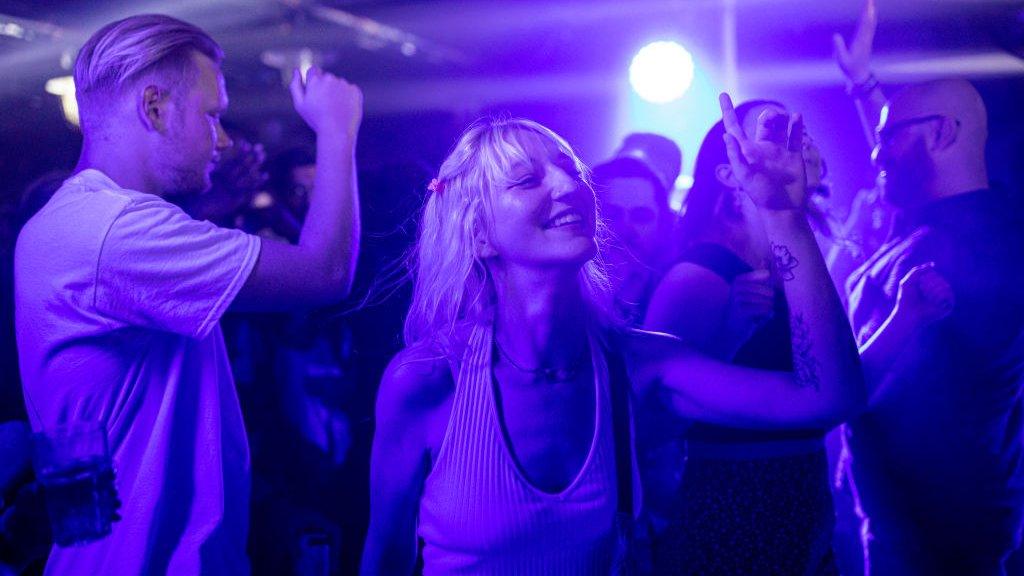
- Published1 September 2021
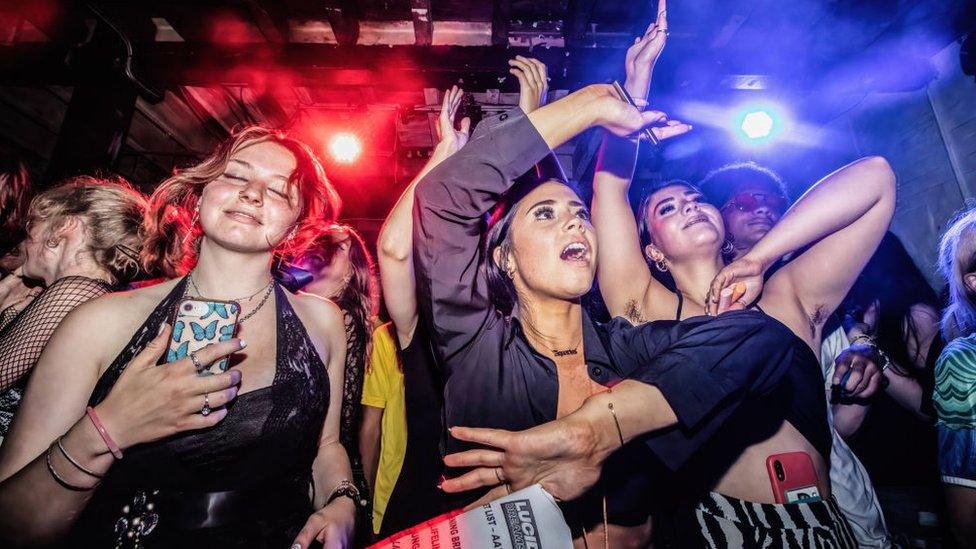
- Published30 August 2021
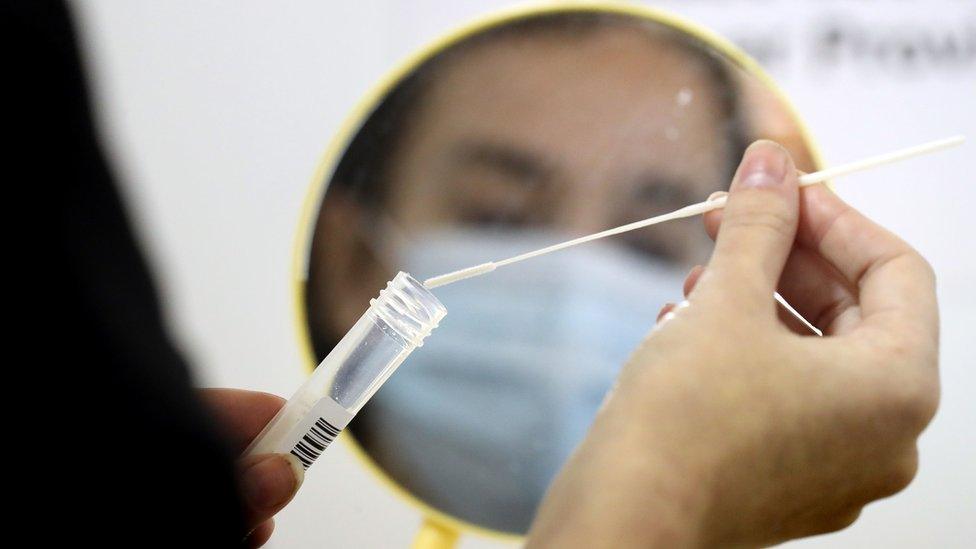
- Published28 August 2021
